Sharp rise in Scottish council house sales
- Published
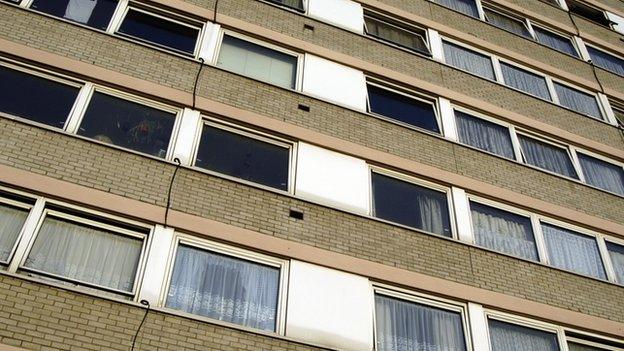
The number of public authority homes sold in the year to March rose by more than a quarter
Council house sales in Scotland rose by 26% following the decision to scrap tenants' right-to-buy, according to official figures.
After years of decline, the number of public authority homes sold in the year to March rose from 1,209 to 1,526.
Ministers announced last year that right-to-buy, previously abolished for new tenants, was to end altogether.
Statisticians concluded that the announcement was "likely to be responsible" for the upturn in sales.
Over the same period, 1,140 new council homes were built in Scotland, the highest total in 25 years.
The number of affordable homes also rose by 17%, with 7,012 completed.
'High priority'
Housing minister Margaret Burgess said: "Over 4,000 new council houses have been delivered through the Scottish government's council house building programme since 2009.
"The supply of affordable housing continues to be a high priority for us and we are working with the entire sector to increase the supply of affordable homes and deliver vital support for construction and housebuilding companies throughout Scotland.
"Since 2011 we have delivered more than 21,000 new affordable homes, bringing us over two-thirds of the way towards our five-year target of 30,000 new homes."
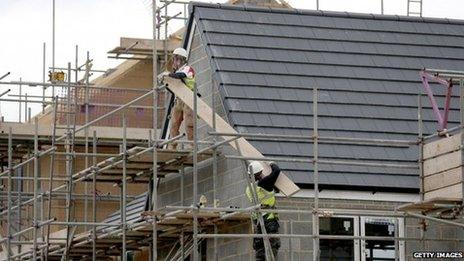
The data showed nearly 16,000 new homes were delivered last year
Across Scotland the total number of new homes increased by 7% over the past year to 15,957 - with Aberdeenshire, Edinburgh and Glasgow accounting for more than a quarter.
The increase is the first since 2007/08 but the supply of new homes still remains well below pre-recession levels.
'Growing confidence'
Ms Burgess said: "This is the first annual increase since before the recession, reflecting the growing confidence within the housing market, which the Scottish government has helped to stimulate through investment in initiatives designed to support the sector and help people into home ownership.
"Nonetheless, new housing supply remains well below pre-recession levels and I recognise that the housebuilding industry continues to face a number of challenges."
The Scottish Federation of Housing Associations (SFHA) broadly welcomed the new statistics.
It said: "The recognition, however, that we still have a very long way to go to recover from the 42% decrease in completions since then, is sobering and reflects the challenge to all providers of new housing.
"The drop in housing association completions represents the time lag between the introduction of the new subsidy levels in 2013 and the time taken to kick-start many projects previously unviable because of lower grant levels.
"However, the increase in approvals for housing association projects - up from 1,620 in 2012/13 to 2,875 in 2013/14 - gives some hope that we are beginning to recover from a devastating slowdown in the construction of social housing, at a time when almost one million Scots can't afford adequate housing conditions."
Responding to the figures, trade body Homes for Scotland warned that sustained increases in production were now under threat after last month's announcement that the Scottish government's Help to Buy scheme had run out of money for this financial year.
Chief executive Philip Hogg said: "The figures show that the increase in supply was driven by the private sector and this clearly demonstrates the huge impact made by the very successful Help to Buy (Scotland) scheme, which has generated over 4,300 sales and reservations since launch less than a year ago.
"Whilst we applaud the Scottish government for introducing the scheme, funding for this year has already run out, leaving both buyers and builders very frustrated.
"The industry has effectively had the rug pulled from beneath it before any firm recovery has had the opportunity to take hold.
"And the impact is already apparent with significant drops in sales in the weeks since the budget expired in July. We therefore fear a return to decline in the months ahead.
- Published16 July 2014
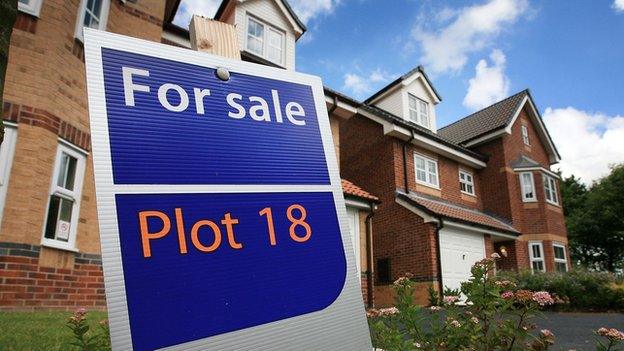
- Published10 July 2014
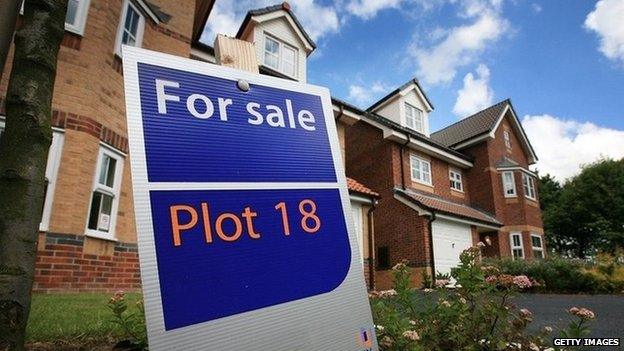
- Published25 June 2014
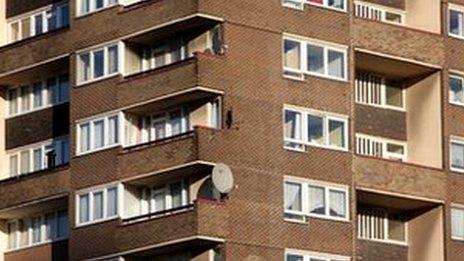
- Published3 April 2014
